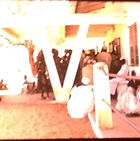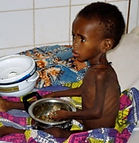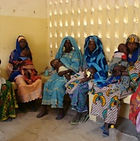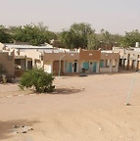

Kirker Hospital

The Start
The Hospital in Maine Soroa (May Knee-So ROW Ah) was established in the 1960s and 70s through the efforts of Dr. William O. Kirker and his wife Barbara, then Peace Corps volunteers. Maine Soroa is a small village in Eastern Niger, near the edge of Lake Chad . It provides health care and services to people from four countries: Niger, Chad, Cameroon and Nigeria.

The Decline
After the Kirkers returned to America, the hospital and outlying facilities slowly deteriorated in spite of the Kirker’s and the Niger Government’s best efforts to maintain and save them. Slowly time took its toll; buildings gradually went downhill and fell into disuse, materials and supplies wore out or were used up, equipment and machines quit working and fell apart, medicines came into very short supply, medical personnel chose to work in other centers, and the patients went elsewhere. After many years the hospital fell into near ruin.

Patients in line, waiting to be seen by the Doctor

A section of the Kirker Hospital's medicine storage room

Growth and Development
The hospital gradually grew from a few meager “beds only” capability to a 110 inpatient multi-divisional facility. Even with 110 beds available, additional patients would have to lie on the ground outside the buildings. All these patients were seen on a daily basis.
The hospital grew into a general, bush (country) complex with Medical, Surgical, Pediatric, Obstetric, Laboratory, Basic X-Ray, Infectious and Contagious Disease buildings, especially Tuberculosis, present.. The hospital also had a Pharmacy, a Storeroom for medicine, general supplies and equipment and an Unique Generating Plant with primary and backup generators supplying electricity through underground wiring to the hospital buildings. Additionally, an Unique Water Supply with its own closed “borehole” well, water-tower and piped water was built along with a vehicle repair Garage. Administrative Buildings included offices , a night guard room, a mechanical building and a small morgue, all within the Hospital’s walled compound.
Along with its local and outlying village medical dispensaries, twelve in number, the Hospital was run and overseen by Dr. Kirker. The staff was seeing, operating on and caring for between 300 to 500 patients per day when a tragic event occurred. In 1974 circumstances beyond the Kirker’s control necessitated their return to the United States.

The phoenix
In 1998 the Niger Government chose to tear down the remaining original structures and replace them with a small, but new 42 bed facility. A small, new hospital slowly emerged. When in 2005 this new hospital was in place, the then President of Niger, the honorable Mamadou Tandja, along with the people of Maine-Soroa asked Dr. and Mrs. Kirker to come back to Niger to run and expand it. The result was the inception of KAMRA and the start of a new era for The Kirker Hospital.
Under the Kirker administration this facility has now grown to 162 beds. About 75% of the rooms have air conditioning, potable running water and in-room toilets. The Hospital is now being run by Niger personnel with help from the Kirker Foundation/KAMRA, who envision a 300 and 400 bed total capacity.
The Kirker Hospital currently has seven sections: one triage (observation section), one maternity/delivery section, one surgery section, one med-peds-malnutrition section, one lab-xray section, one kitchen section, and one administrative section.
The hospital is currently headed by Dr. Manouga Adamou, Director and Medical Chief of Staff. He is the Focal Point of KAMRA and the Kirker Foundation/Niger’s efforts at the Hospital. He is responsible for receiving and dispersing all medicines, equipment and supplies brought to the hospital and outlying centers by The Kirker Foundation/Niger. He is also responsible for writing and coordinating all medical reports, based on data sent to him by different Health Centers in the District. His staff is made up of two general physicians, one surgeon, one surgical assistant, one nurse anesthesist, one nurse eye specialist, 5 lab technicians, 22 nurses and many non-medical personnel.
Under the auspices of The Kirker Foundation Niger/KAMRA, and the then President of Niger, nine new hospital buildings were constructed during the years 2007/2011. These buildings provide new and comfortable rooms for the patients as well as modern lodging for international expatriate staff .
Through a new program under development, called The Lake Chad Basin Medical Initiative, KAMRA hopes to provide outreach and healthcare to all the people throughout the entire four country Lake Chad Basin Medical region.
In recognition of Doctor and Mrs. Kirker’s contributions to the improvement of the local and regional communities health and well being, the Maine-Soroa hospital has been re-named The Kirker Hospital in their honor.